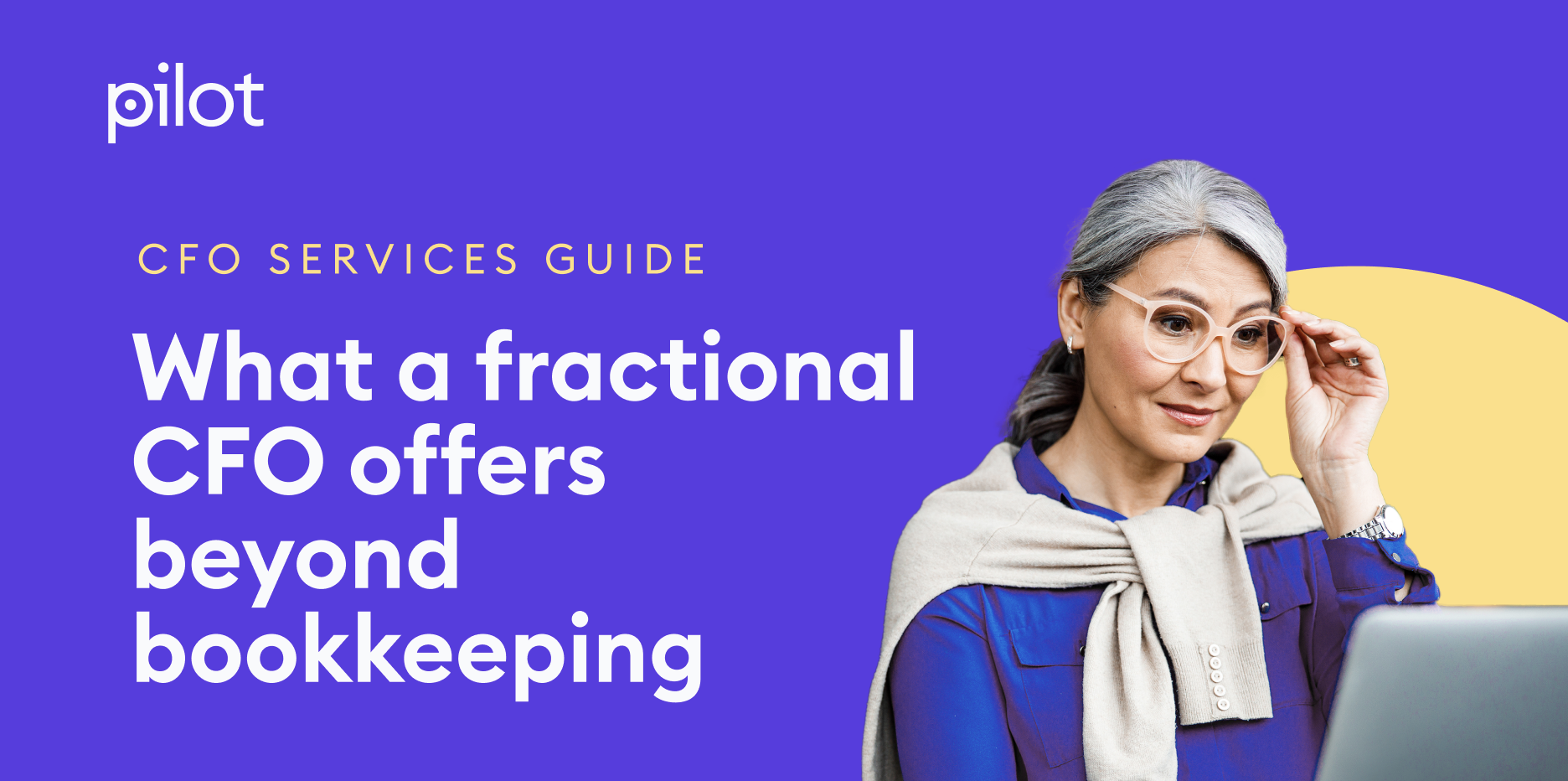How to hire accountants

When you hire an accountant, you get a lot more than just a number-cruncher. From drawing up business plans and implementing financial systems, to handling audits and tax preparation, accounting professionals provide invaluable input at many stages of the startup lifecycle.
But that doesn’t mean you need to hire accountants to hold your hand 24/7. Full-time accountant employees can be pricey — $65,000 a year at minimum. And some of their tasks are easily taken care of by bookkeeping services or existing team members.
So when do you take the plunge and hire an accountant onto your team? We asked both accounting professionals and CEOs for their take on when and how to hire an accountant.
Step one is to figure out exactly what an accountant can do for you. Let’s dive in.
What Do Accountants Do?
Accounting is a catch-all term that’s often used to describe the entire financial management process. This includes the recording of financial info and the synthesis of that info into useful reports for both business people and tax agencies.
The first part of the financial process — recording financial transactions and preparing financial statements — can be done by bookkeepers. This is often a better value option, particularly for early-stage companies looking to optimize costs.
Accounting Tasks
Before setting out to hire an accountant, establish what tasks you need them to do. An accountant’s main responsibility will be to keep your business’s financial information in order month-to-month. That might involve:
- Parsing financial statements looking for errors and opportunities.
- Auditing financial statements and documents to ensure that you’re legally compliant.
- Preparing financial statements for pitch decks and investor or shareholder reports.
- Organizing payroll and payroll taxes.
- Preparing tax returns and other tax preparation documentation.
- Producing financial reports.
- Working with external auditors.
On top of those standard tasks, accountants can perform more managerial roles, particularly in larger companies. You’ll often find accountants doing the following:
- Weighing in on business plans or strategic decisions.
- Creating financial forecasts and budget projections and communicating them to the board or shareholders.
- Developing policies around procurement.
- Managing other members of the finance team.
Accountants often grow to specialize in one particular aspect of the job or become an expert in a specific vertical. If your business has a niche focus or complex tax liabilities, it might be worth considering hiring an accounting specialist in that area.
Personality
Due to the variety of tasks accountants can be called on to do, the best accountants are both detail-oriented and flexible. Andrew Hoag, CEO of purchasing software company Teampay, points out that the best hires are the accountants who get their hands dirty while also being able to think strategically.
“You want someone who has the expertise you need to hit the ground running,” Hoag says, “but also the flexibility to adapt and grow with the company. We work with a lot of first finance hires, and the challenge is both cleaning up the ‘mess’ — which requires some elbow grease — and then putting systems in place to support the growth of the business. This requires some strategy and forethought.”
So who would Hoag look for? “Ideally, I would look for someone who’s got day-to-day financial operations experience, but a history of achievement or diverse experience to show they are agile in their approach.”
Explore Pilot Account Services
When to Hire an Accountant
Not all businesses will need an accountant from day one. Many business owners are capable of writing a business plan, budgeting, and choosing the right legal structure for their business.
The first financial team member you should call in is a bookkeeper. Bookkeeping services track day-to-day accounting transactions and set up watertight financial management systems.
With Pilot bookkeeping, for example, we produce monthly financial statements and bank reconciliations for our clients to make sure they are making decisions based on up-to-date financial information.
When transactions become more complex, or you need advice about organizing loans or filing taxes, it’s time to lean on an accounting team.
In-house vs. Outsourced Accounting
If you’ve established that you need more than bookkeeping services, the next question is whether you want an accountant in-house or are happy to start off with an outsourced accounting solution. Let’s take a look at the pros and cons of each.
Outsourced Accountants
Outsourced accounting services usually come in two forms: local CPA firms or outsourced accounting providers.
Local CPA firms are good for businesses that need (or want) a lot of personal attention and facetime. However, your local CPA firm may lack specialist knowledge of your business’s vertical.
Outsourced providers based remotely can match you up with accountants with niche knowledge, but don’t expect the kind of personal attention you’d receive from a local CPA firm.
In-house Accountants
In-house accountants work well if you’re a hands-on business owner who wants to manage the accountant’s tasks and workflow proactively. Hiring in-house also means you can hand-pick someone who is excited about growing alongside the needs of your company.
That said, putting someone on the payroll is costly. Salary, benefits, office space, equipment, and taxes all add up. Plus, if you hire too soon, there may be times when your accountant has nothing to do, putting an unnecessary strain on finances.
Andrew Hoag points out that combining both in-house and outsourced accounting roles is also an option, “You may continue to use outsourced accountants for bookkeeping and day-to-day operational finance, but have a Head of Accounting or Controller who oversees the external team and owns the numbers.”
How Much Do Accountants Cost?
Cost is a major determining factor when you hire an accountant. There’s plenty of competition for accounting staff out there, and the unemployment rate for accountants is at a mere 2.3 percent, according to U.S.News. The sector is also growing at a rate of 10%, faster than the average cross-sector growth of 8%. Don’t expect to find an accountant at rock-bottom prices.
- Outsourced accountant fees: Ask about fees upfront and request invoices from recent projects. Expect to pay between $100-300 per hour, often with a small monthly retainer fee on top.
- In-house: According to the Bureau of Labor Statistics, the median annual pay for accountants as of 2019 was $71,550.
While outsourced accounting services are often a smarter financial option, keep track of how much you’re spending over the long-term. Lean on outsourced professionals too frequently, and you’ll find monthly fees add up to more than an annual salary over the year. If that happens, it may make financial sense to shift to an in-house accountant.
Hiring an Accountant: The Process
Hiring any professional is a tough exercise, but when it comes to hiring for roles with specialized knowledge, the task is even harder. The key to a good accounting hire is a lot of groundwork before you even invite candidates for an interview.
Define Accounting Job Responsibilities
List out the tasks you expect an accounting professional to own. For example, you may want to maintain an external bookkeeping service but have your in-house accountant own your financial management systems. The list of common accounting tasks earlier on in this post should help you define the most pressing business needs.
Pro tip: If you need an accountant to prepare finances for public consumption — tax returns or external audits, for example — then you need to hire a Certified Public Accountant, or CPA. If you just need an accountant to take care of internal business and reporting, you can hire a private accountant.
Accounting Job Descriptions
Accounting is a highly technical profession that requires both specialized software use and so-called ‘soft skills’ such as communication. Unless you’re an accountant yourself, it can be difficult to know exactly what to include in the job description when hiring. It pays to scope out sample job descriptions before putting together your accountant job ad.
Pre-Interview Screening
Interviewing takes time and energy, something most business owners are pretty short on. Do yourself a favor, and implement a strict screening process for candidate resumes.
Define must-have skills and qualifications, and use these to make a first-round cut of resumes that fall short. Next, list out nice-to-haves and grade the remaining candidates in order, putting the highest qualified people on the top of the pile. With a bit of luck, you’ll find your perfect accountant without having to interview every candidate on the list.
Possible Accountant Interview Questions
Interviewing accountants is tricky: asking the right questions is one thing — knowing if you’re getting the right answers is another.
Prepare questions and model answers beforehand. Some common questions to ask in an accounting interview are:
- What are the three main budgeting methods? Explain them to me.
- Explain this financial statement to me (choose between the balance sheet, statement of cash flows or income statement).
- How might the Tax Cuts and Jobs Act affect a business like ours?
- If you have negative working capital, what does that mean for the business?
- How do you calculate runway and burn rate, and what financial statement do you need to do so?
- What’s the difference between deferred revenue and accounts receivable?
- How do you estimate bad debt?
- Explain how revenue recognition and the matching principle work.
- How do you explain complex accounting problems to people without a financial background?
- If you were our accountant, what would keep you awake at night?
Skills and Abilities to Look For in an Accountant
Exact skill sets will depend on an accountant’s specialization. That said, there are some personality traits and strengths that run through the profession and separate successful accountants from those who struggle.
Analytical Skills: Both bookkeepers and accountants usually have analytical, detail-oriented personalities. Posting daily transactions and uncovering accounting slip-ups require an eagle-eye and a lot of focus. While hybrid bookkeeping software like Pilot’s pretty much eradicates human error, accountants still need to be able to zone in on financial statements and make detailed interpretations. Hire someone who isn’t afraid to sweat the small stuff.
Software Packages: Accountants obviously need to be Excel experts, as well as having advanced skills in ERP software like QuickBooks or NetSuite.
Depending on the scope of the role, you may also want them to be familiar with purchasing software and financial planning and analysis tools too.
Communication Skills: Business owners and colleagues look to accountants to solve problems. Often they’re the only person in the business with the know-how to do so. That means accountants have to be able to empathize with non-financial management colleagues and distill unfamiliar concepts into familiar terms.
Look for accountants who are comfortable using visuals aids to back up their arguments and who give solution-based — rather than theoretical — answers to questions.
Honesty: Accountants have access to all your business’s financial data and a free hand over financial reporting. Not only do you need to hire an accountant you can trust not to misuse that data, but you also need to trust them to carry out unbiased financial reporting.
Don’t rely on gut feeling when hiring. Carry out reference checks with prior employers, or use sites like CPAverify to check CPA credentials. Companies like HireRight will perform background checks on candidates for you.
“A good accountant is someone who has great focus and attention to detail, but can also communicate well and collaborate with others.” Ken Boyd, Accounting Accidentally.
Onboarding an Accountant Hire
Once you’ve selected and signed the ideal candidate, spend some time thinking about how to onboard them right. This is even more vital if they’re the first member of your financial team, as you’ll want to start with a strong foundation.
Start by prepping up-to-date financial statements for the new hire. A bookkeeping service will help you get statements organized. Don’t forget to give the new accountant access to all bank accounts and any accounting software already set up.
On their first day, introduce them to any bookkeeping staff or services you have, and make sure roles and responsibilities are clearly defined within the finance team.
Decide on a meeting and reporting cadence as soon as possible. It’s a good idea to meet one-on-one with accounting staff at least once a month to go over financial statements and performance.
Finally, set expectations about the kind of advice you expect from the accountant, whether that’s advice on cutting costs, revenue optimization, or even fintech tool recommendations. Also lay out how you want them to communicate this info.
Teampay’s Andrew Hoag again, “Most new accounting hires want to start from the bottom-up; in fact if they don’t, this would be a red flag … Once they build up their own understanding of the financial details for the business, reaching out to other departments to understand their needs would be the next step. This serves as guidance for where they can continue to support the business from a growth perspective.”
Conclusion
Knowing when and how to hire an accountant can be confusing, especially for new business owners without a financial background. A well-planned hiring process will empower you to define what kind of professional you want to work with and how they can help you maximize financial growth.
Hire right, and you’ll build the foundations for a finance team that will grow with your business and add value for the long-term.
At Pilot, we have a team of expert bookkeepers using unique tools to streamline your bookkeeping. If you want to keep better books, Try Pilot's Bookkeeping Services Now.





